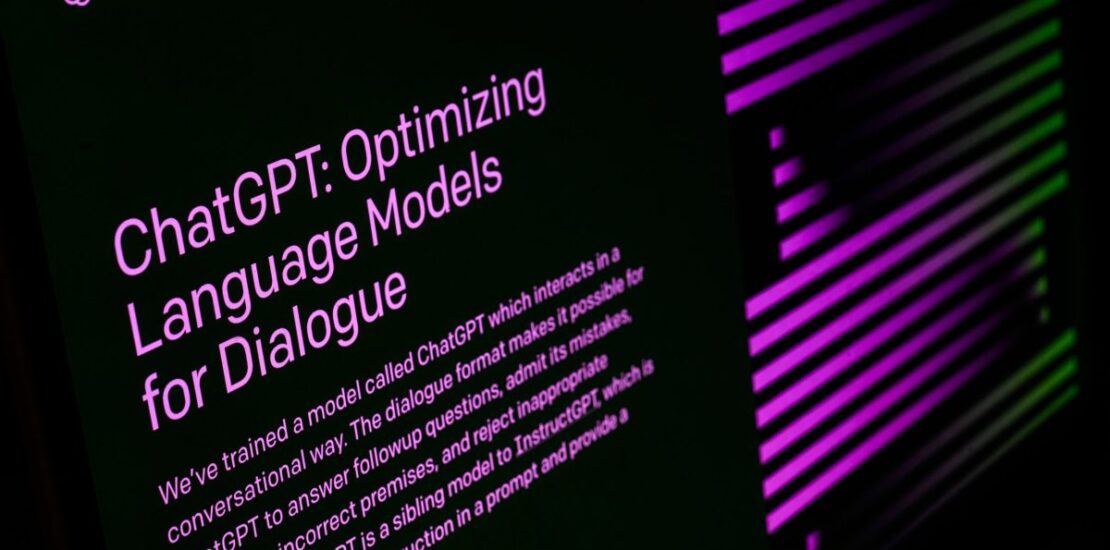Everything you need to know about the AI chatbot
- November 4, 2024
- Posted by: chuckb
- Category: TC Artificial Intelligence

Since its launch in November 2022, ChatGPT, OpenAI’s AI chatbot, has rapidly transformed how individuals and organizations engage with artificial intelligence. Initially designed to assist users in writing essays and code via short text prompts, ChatGPT has become a vital tool leveraged by over 92% of Fortune 500 companies. OpenAI has enjoyed a meteoric rise in popularity and is now among the most talked-about enterprises in the tech industry. A recent partnership with Apple for its forthcoming generative AI solution, Apple Intelligence, further boosts OpenAI’s standing in the competitive AI landscape.
In 2024, OpenAI unveiled GPT-4o, its new flagship omni model, which serves as the default free version of ChatGPT and introduces voice capabilities. However, the rollout faced a setback when one of the voice options, named Sky, was discontinued amid allegations of it imitating actress Scarlett Johansson’s performance in the film "Her."
Internally, OpenAI has also experienced significant shakeups, notably the departure of co-founder and chief scientist Ilya Sutskever as the company dismantled its Superalignment team. Legal troubles have emerged as well, including a lawsuit from newspapers owned by Alden Global Capital, such as the New York Daily News and the Chicago Tribune, alleging copyright infringement, following a similar lawsuit from The New York Times in the previous year.
Key Updates and Releases of ChatGPT
October 2024
- Sam Altman, OpenAI’s CEO, cited a lack of compute capacity as a reason for delays in product releases, including some features initially teased for the Advanced Voice Mode.
- OpenAI launched ChatGPT Search, an upgraded web information tool capable of returning links and photos while enabling users to perform follow-up queries.
- Advanced Voice Mode was released for desktop applications on macOS and Windows, allowing for coexistence with Siri on Mac devices.
- Reports surfaced indicating OpenAI’s plans to produce its own AI chip in collaboration with TSMC and Broadcom, signaling a shift from prior intentions to establish a factory network.
September 2024
- Potential price increases for ChatGPT subscriptions were disclosed, with expectations of growing from $20 to $44 over five years.
- Several high-profile exits from OpenAI’s leadership, including CTO Mira Murati, raised eyebrows and prompted discussions about company direction.
August 2024
- OpenAI formed a content-sharing agreement with Condé Nast, along with several other media outlets, allowing for curated articles to be presented within ChatGPT.
- Controversies continued around ChatGPT’s Advanced Voice Mode, which was tested and became a highlight for its rapid responses and nuanced capabilities compared to competing assistants like Siri and Alexa.
July 2024
- Following initial testing, OpenAI’s Advanced Voice Mode was introduced to the user base, expanding conversational capabilities significantly.
- Reports of ChatGPT facing operational loss due to high costs emerged, highlighting financial sustainability challenges.
June 2024
- OpenAI launched CriticGPT, a model focused on identifying errors in responses generated by GPT-4, further refining the quality of output.
- A new app for macOS was released, enhancing desktop usage for ChatGPT and making the service more accessible.
April 2024
- A significant lawsuit was filed against OpenAI by several newspapers for allegedly using copyrighted articles without permission to bolster its chatbot services.
- OpenAI’s collaborations expanded, including a partnership with the Financial Times to provide summarizations and excerpts within ChatGPT.
Broader Societal and Legal Context
The journey of ChatGPT has not been without hurdles. Legal battles concerning copyright infringement through the utilization of data sourced from various media publications have drawn significant attention. OpenAI contends that invoking freely available online content constitutes fair use, a stance that faces challenges as legal precedents are set.
Executive upheaval within the company has sparked discussion on governance and compliance standards, particularly as regulations around AI grow increasingly stringent across different regions, especially in the EU, where privacy laws are being scrutinized closely.
Conclusion
In summary, ChatGPT has proven itself to be a transformative AI tool with widespread implications for productivity and efficiency, garnering substantial adoption among businesses. Nevertheless, the fast-paced evolution of the platform is accompanied by complex challenges in governance, legality, and ethical implications. OpenAI’s narrative is a reflection of the broader dynamics shaping the AI landscape as it grapples with milestones and controversies in its quest to lead the generative AI market.
